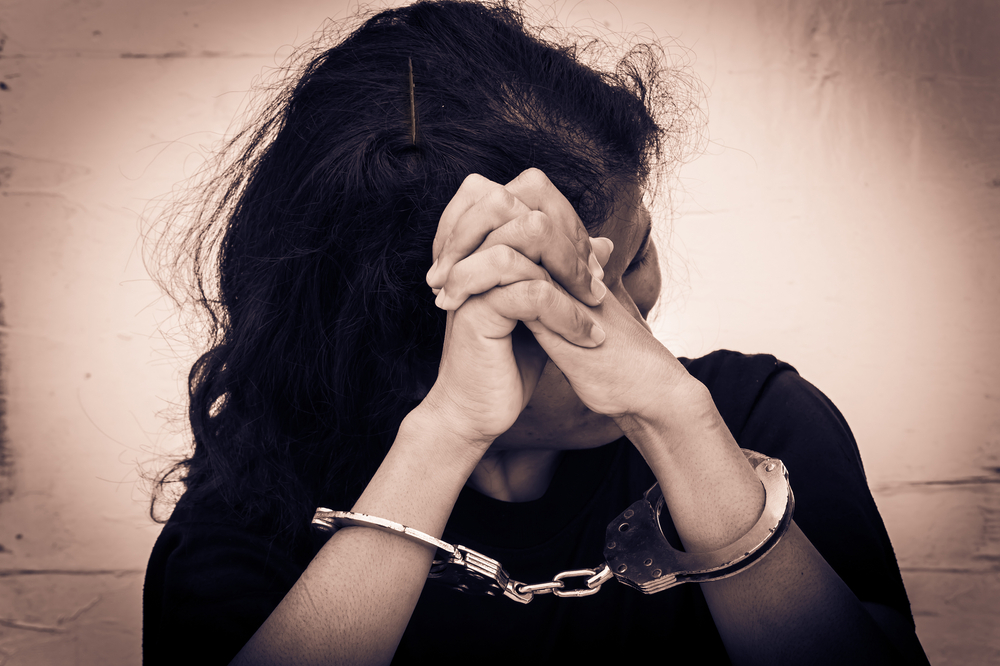When Anjali wanders the backstreets of a city in southern India where she was once forced into prostitution in the name of religion, she does not go seeking answers, closure or revenge.
The 39-year-old survivor searches Raichur for other victims of the illegal devadasi system — which sees girls “dedicated” to temples and trapped in sex slavery — trying to earn their trust and refer them to rehabilitation schemes run by the government.
Anjali is part of an initiative by the Karnataka government that has turned to survivors and community workers in a push to find and support more trafficking victims.
“The devadasi practice is illegal but continues quietly,” Anjali, who declined to give her real name as her children were unaware that she was sex trafficked as a teenager, told the Thomson Reuters Foundation in an interview over the phone.
“Since it is illegal, people trapped in it are very scared of coming out,” said the community leader and member of Taaras, a coalition of women in sex work with a presence in 12 states. “They fear they will face police action and suffer in silence. The only time they speak up is when I go to them.”
Several state governments in the country are increasingly working with survivor networks and community groups — which include thousands of volunteers — to trace, identify and help victims.
Survivors not only know where to look for victims, but can help them overcome any stigma and shame, as well as mistrust in the authorities, according to campaigners and state officials.
From community-led search-and-rescue efforts to mobile apps designed to give survivors a say, various initiatives are aiming to build trust between victims and the state and improve support as the country uncovers a growing number of modern-day slaves.
More than 23,100 people nationwide — 60 per cent being children — were rescued from human traffickers in 2016, up by a fifth on the previous year, the latest available government data shows.
Yet charities that deal with trafficking say the true number is likely to be far higher, and state governments are trying to track more victims by working with communities and survivors.
India offers a rehabilitation and reintegration scheme for trafficking survivors — from counselling to giving them land and vocational training in skills such as embroidery and basket weaving — yet campaigners say few actually end up benefiting.
Most survivors are unaware of their rights and unable to access them without the support of a lawyer or a charity — or are put off by the arduous process of seeking help, they said.
While state governments periodically undertake surveys to identify the number of survivors and document beneficiaries of various support schemes, officials have said they lose track of many victims who go back to their villages after being rescued.
In Karnataka, survivors such as Anjali are helping the government monitor the rehabilitation process of victims.
“It is a wonderful, neighbourhood watch sort of system,” said Vasundhara Devi, managing director of the Karnataka State Women Development Corporation. “We leverage the connection community workers have to gain access to others and bring them under the devadasi rehabilitation programme.”
Similarly, in neighbouring Telangana, the State AIDS Control Society tracks the health of trafficking survivors with the help of a sex workers’ group that liaises directly with such victims.
“They don’t open up to government officials but confide in peers who have been through their journey,” said civil servant Anna Prasanna Kumari, adding that each community worker gave the state access to larger groups of women in need of help.
Kumari said a new mobile app, launched on a trial basis in five districts of southern Telangana state this May after being proposed by community leaders, is being used to collect data on access to health for slavery survivors and follow up on cases.
In Bengal, another mobile app — Utthan — allows trafficking victims enrolled in rehabilitation schemes to rate government officials on their sensitivity, efficiency and the time taken to respond to survivors and their needs.
The feedback is sent to senior officials and since its creation in 2018, the app has seen survivors receive care quicker and raised awareness among civil servants about the crime and the trauma facing victims, according to its users.
“With this app, the relationship between the policy maker, survivor and officials on ground has become more equal,” said psychologist Pompi Banerjee of anti-trafficking charity Sanjog.
Anti-trafficking charities say survivor networks stretch across various states — boosting their reach and ability to help people in bonded labour from brick kilns to garment factories.
Groups such as the Released Bonded Labourers Association (RBLA) — formed in 2014 — focus on freeing others from slavery, often first identifying victims trapped in forced labour, tipping off the police, and even taking part in rescues.
“The importance of these networks is today being realised by government officials who are unable to track down and help everyone,” said Kallan Gowda, chief impact officer for the non-profit Swasti, which supports the Taaras coalition.
“In the last few years, many sex workers and trafficked women have become invisible as the way business is done has changed,” he said, referring to the use of technology in trafficking that has driven the trade further underground. “But it is important to account for them and community organisations are the only link.”
For Anjali, keeping track of women pushed into devadasi slavery is easy even as traffickers change tactics.
“People hide the girls and don’t put beads (on them) that would indicate they have been dedicated,” she said, referring to the fact victims are traditionally made to wear a necklace.
“But I know because I can see the signs that government officials can’t. I knock on their doors quietly and the truth slowly comes out. I then tell them where and how to find help.”











